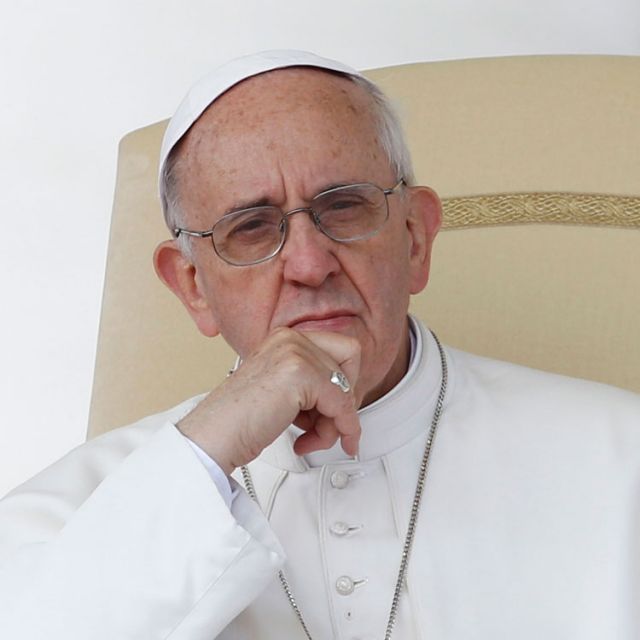"Careerism is a leprosy, a leprosy," the pope said June 6, in a speech to students from the Pontifical Ecclesiastical Academy, the school for future Vatican diplomats. "Please, no careerism!"
All types of priestly ministry require "great inner freedom," the pope said, which calls for "vigilance in order to be free from ambition or personal aims, which can cause so much harm to the church."
Priests must make their priority the "cause of the Gospel and the fulfillment of the mission" entrusted to them, not self-fulfillment or public recognition, he said.
Such self-denial "may appear demanding," the pope said, "but it will allow you, so to speak, to be and to breathe within the heart of the church."
By "cultivating a life of prayer," he told the priests, one can transform daily work into the "gymnasium of your sanctification."
The Pope recalled that Blessed John XXIII, who died 50 years ago June 3, had served as a Vatican diplomat for much of his career. Pope Francis quoted a statement by Blessed John that church diplomacy "should always be permeated by a pastoral spirit; otherwise, it counts for nothing, and makes a holy mission ridiculous."
Elaborating on the idea, Pope Francis warned that a papal diplomat who "doesn't go along the way of sanctity, and gets involved in so many forms, in so many kinds of spiritual worldliness, makes himself ridiculous, and everyone laughs at him."
"Please, don't make yourselves ridiculous," he said. "Either be saints or go back to the diocese and be a pastor, but don't be ridiculous in the diplomatic life, where for a priest there are so many dangers for the spiritual life."
The pope also acknowledged the value of Vatican diplomacy to him as the "successor of Peter," with a "particular mission at the service of communion and the unity of the flock of Christ," and a "pastoral charity that embraces the whole world."
Diplomats, he said, allow the pope to extend his charity to "those places, often forgotten, where the needs of the church and of humanity are greatest."


